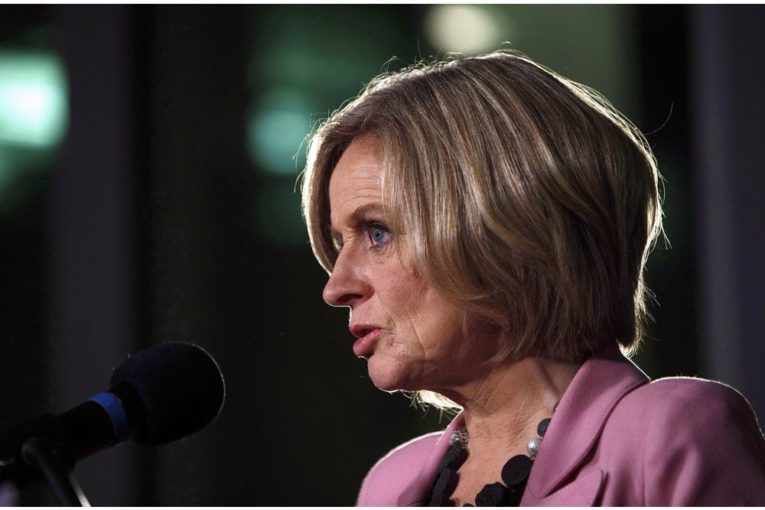
CALGARY – The Alberta government will allow oil companies in the province to pump an additional 75,000 barrels of crude next month, easing a curtailment order that has cut the province’s total oil output amid a pipeline shortage.
“We’re not out of the woods yet, but this temporary measure is working,” Alberta Premier Rachel Notley said Wednesday afternoon, announcing that a glut of oil in storage in the province had been mostly cleared.
The province will now allow producers to pump a total of 3.63 million barrels per day beginning in February and through March — representing an increase of 75,000 barrels per day or, 2 per cent, from the 3.56 million bpd production limit from January.
Notley’s government announced in December that oil companies would have to cut back their production by 325,000 bpd at a time that Western Canada Select oil prices were trading at record-setting price discounts of US$50 per barrel relative to the U.S. benchmark West Texas Intermediate.
Since the curtailment order, the amount of oil in storage tanks in Alberta has declined by 5 million barrels to a total of 30 million barrels and the differential has shrunk substantially.
According to AltaCorp Capital data, the differential between WCS and WTI was just US$8.94 per barrel on Monday.
The government announced the new curtailment figures in the middle of a press conference put on by the province’s five oil and gas industry groups at which executives were encouraging voters to consider energy policy in the province during the upcoming election.
“I think it’s a sign that folks are trying to move away sensibly from curtailment,” said Tristan Goodman, president of the Explorers and Producers Association of Canada, which represents small- to mid-sized companies.
He said the curtailment issue won’t solve Alberta’s oil price discounts on its own and that more export pipelines are needed to clear the glut in the province.
“The issues is tough in that as you start to move, without fixing the market access problem, you’re going to eventually end up in the same situation,” Goodman said.
The province’s unprecedented move to set production limits has divided the Alberta industry with integrated oil companies such as Suncor Energy Inc., Husky Energy Inc. and Imperial Oil Ltd. opposing the measure and others arguing it was needed to lift prices.
The controversial measure has also had an effect oilfield services companies.
“We have members who have been at the wrong end of curtailment,” Petroleum Services Association of Canada president and CEO Gary Mar said. He said that some fracking companies have had jobs cancelled because oil companies have not brought on new production during the curtailment order.
“We’ve got, right now, people that are being laid off before spring breakup — this is normally the busiest time of the year in this business,” he said.
As export pipelines have filled to capacity, the amount of oil leaving Canada on railway cars has soared, hitting new highs each month. National Energy Board data shows crude by rail shipments rose to 330,000 bpd in Nov. 2018, up from 145,695 bpd at the beginning of the year.
• Email: gmorgan@nationalpost.com | Twitter: https://twitter.com/geoffreymorgan” class=”twitter-follow-button”>geoffreymorgan
You can read more of the news on source
